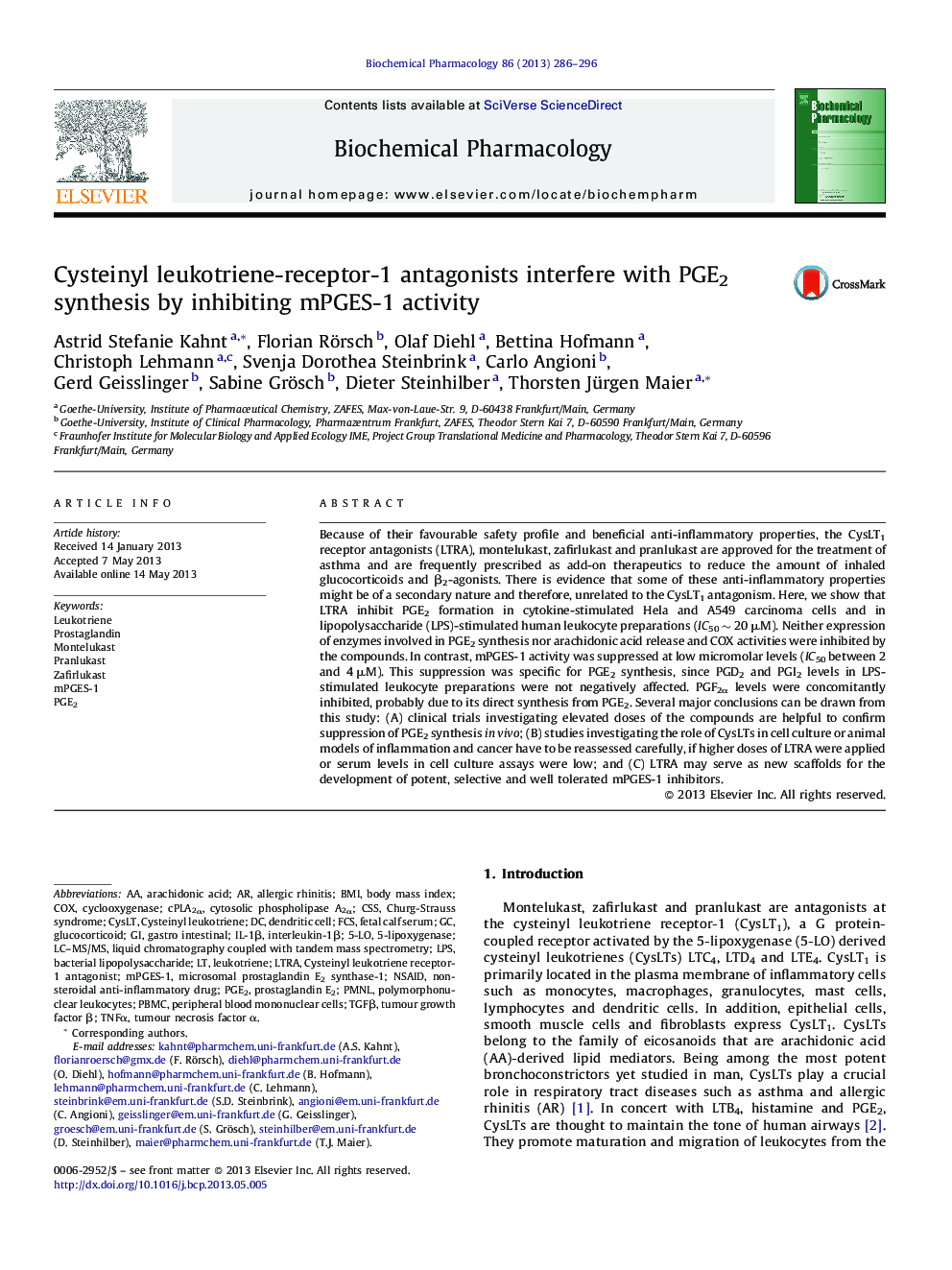| Article ID | Journal | Published Year | Pages | File Type |
|---|---|---|---|---|
| 2512608 | Biochemical Pharmacology | 2013 | 11 Pages |
Because of their favourable safety profile and beneficial anti-inflammatory properties, the CysLT1 receptor antagonists (LTRA), montelukast, zafirlukast and pranlukast are approved for the treatment of asthma and are frequently prescribed as add-on therapeutics to reduce the amount of inhaled glucocorticoids and β2-agonists. There is evidence that some of these anti-inflammatory properties might be of a secondary nature and therefore, unrelated to the CysLT1 antagonism. Here, we show that LTRA inhibit PGE2 formation in cytokine-stimulated Hela and A549 carcinoma cells and in lipopolysaccharide (LPS)-stimulated human leukocyte preparations (IC50 ∼ 20 μM). Neither expression of enzymes involved in PGE2 synthesis nor arachidonic acid release and COX activities were inhibited by the compounds. In contrast, mPGES-1 activity was suppressed at low micromolar levels (IC50 between 2 and 4 μM). This suppression was specific for PGE2 synthesis, since PGD2 and PGI2 levels in LPS-stimulated leukocyte preparations were not negatively affected. PGF2α levels were concomitantly inhibited, probably due to its direct synthesis from PGE2. Several major conclusions can be drawn from this study: (A) clinical trials investigating elevated doses of the compounds are helpful to confirm suppression of PGE2 synthesis in vivo; (B) studies investigating the role of CysLTs in cell culture or animal models of inflammation and cancer have to be reassessed carefully, if higher doses of LTRA were applied or serum levels in cell culture assays were low; and (C) LTRA may serve as new scaffolds for the development of potent, selective and well tolerated mPGES-1 inhibitors.
Graphical abstractFigure optionsDownload full-size imageDownload as PowerPoint slide
